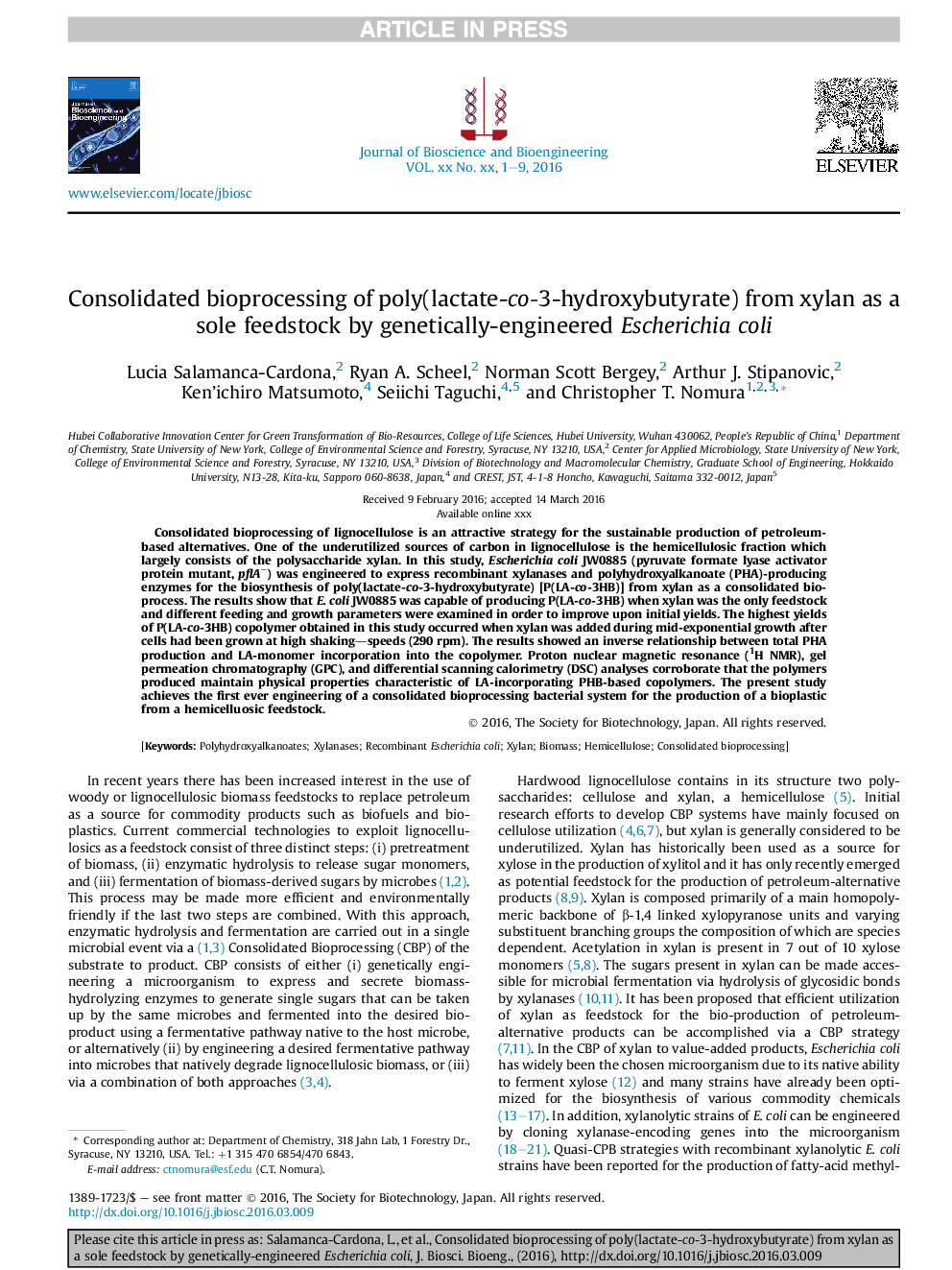| Article ID | Journal | Published Year | Pages | File Type |
|---|---|---|---|---|
| 4753344 | Journal of Bioscience and Bioengineering | 2016 | 9 Pages |
Abstract
Consolidated bioprocessing of lignocellulose is an attractive strategy for the sustainable production of petroleum-based alternatives. One of the underutilized sources of carbon in lignocellulose is the hemicellulosic fraction which largely consists of the polysaccharide xylan. In this study, Escherichia coli JW0885 (pyruvate formate lyase activator protein mutant, pflAâ) was engineered to express recombinant xylanases and polyhydroxyalkanoate (PHA)-producing enzymes for the biosynthesis of poly(lactate-co-3-hydroxybutyrate) [P(LA-co-3HB)] from xylan as a consolidated bioprocess. The results show that E. coli JW0885 was capable of producing P(LA-co-3HB) when xylan was the only feedstock and different feeding and growth parameters were examined in order to improve upon initial yields. The highest yields of P(LA-co-3HB) copolymer obtained in this study occurred when xylan was added during mid-exponential growth after cells had been grown at high shaking-speeds (290 rpm). The results showed an inverse relationship between total PHA production and LA-monomer incorporation into the copolymer. Proton nuclear magnetic resonance (1H NMR), gel permeation chromatography (GPC), and differential scanning calorimetry (DSC) analyses corroborate that the polymers produced maintain physical properties characteristic of LA-incorporating PHB-based copolymers. The present study achieves the first ever engineering of a consolidated bioprocessing bacterial system for the production of a bioplastic from a hemicelluosic feedstock.
Keywords
Related Topics
Physical Sciences and Engineering
Chemical Engineering
Bioengineering
Authors
Lucia Salamanca-Cardona, Ryan A. Scheel, Norman Scott Bergey, Arthur J. Stipanovic, Ken'ichiro Matsumoto, Seiichi Taguchi, Christopher T. Nomura,
